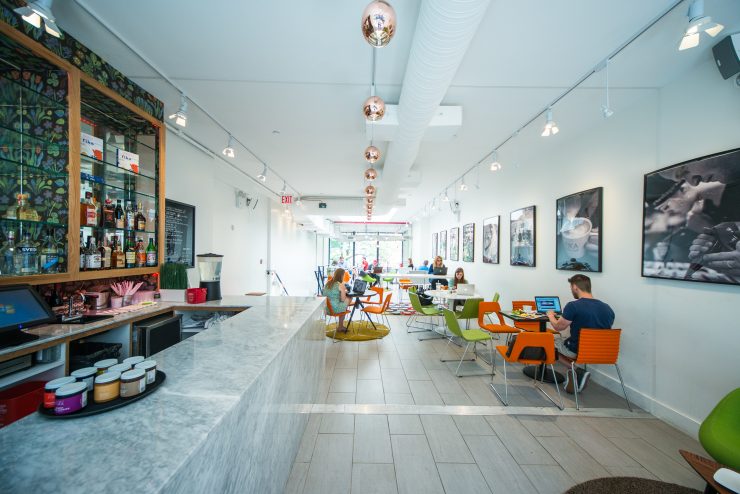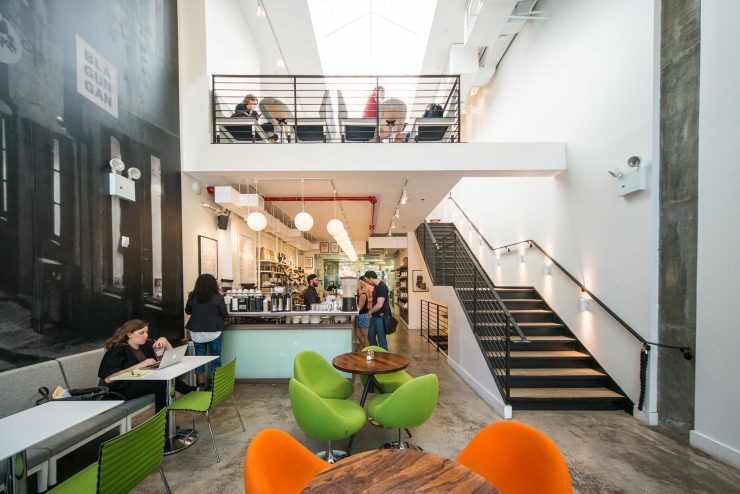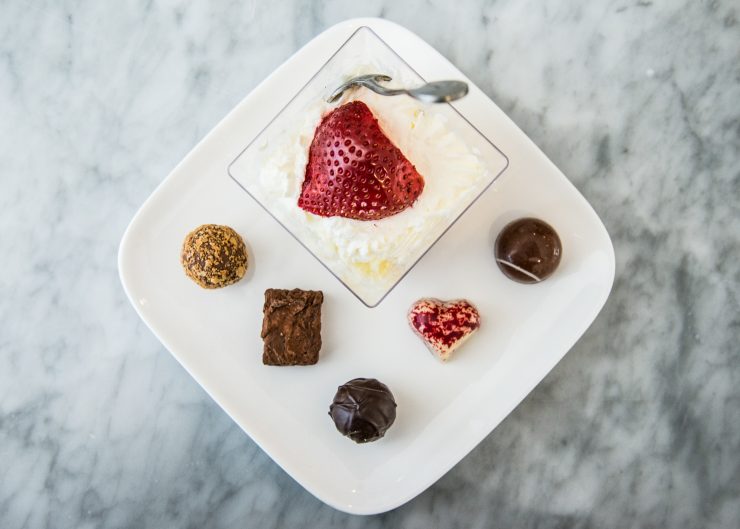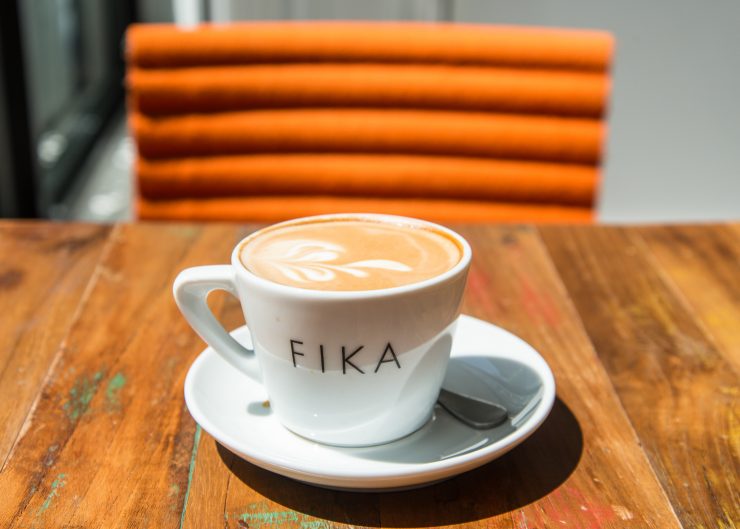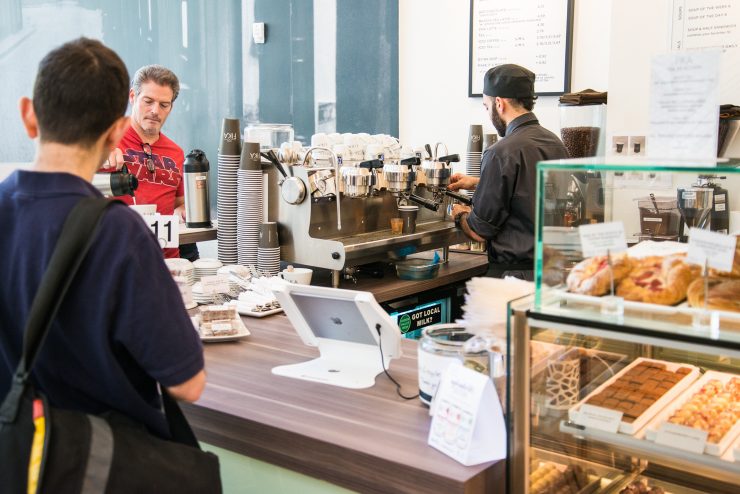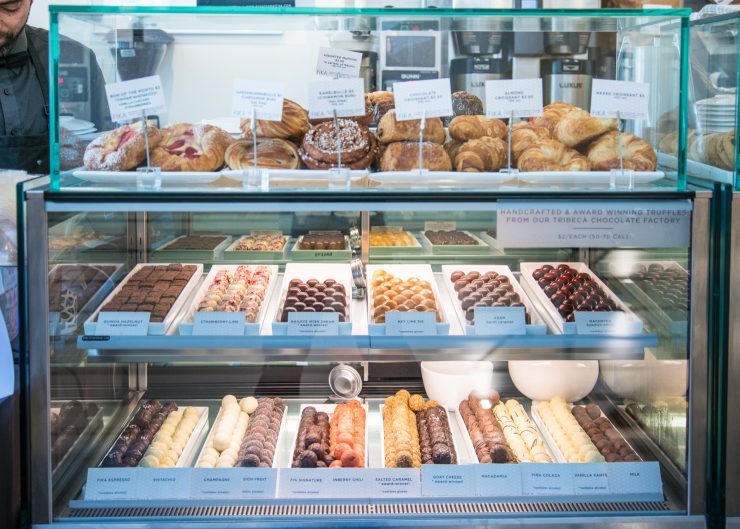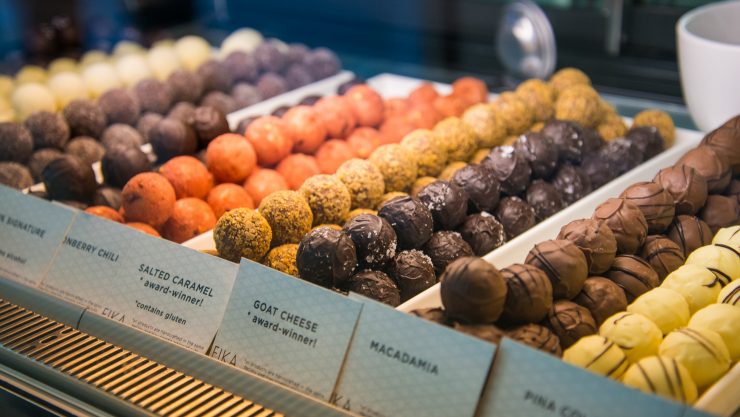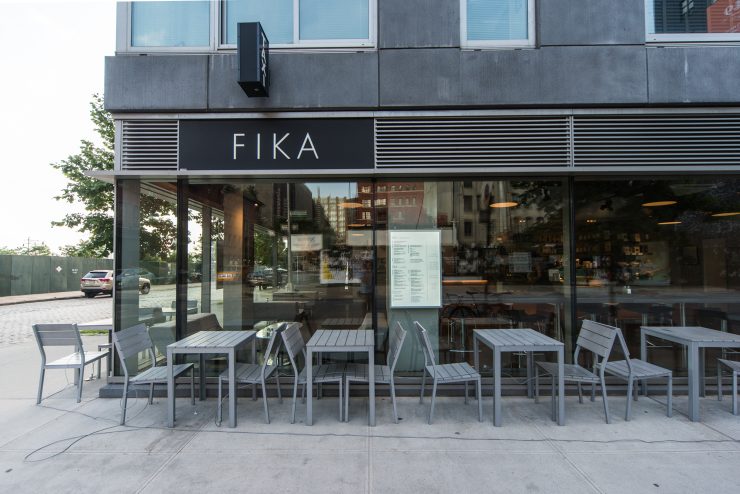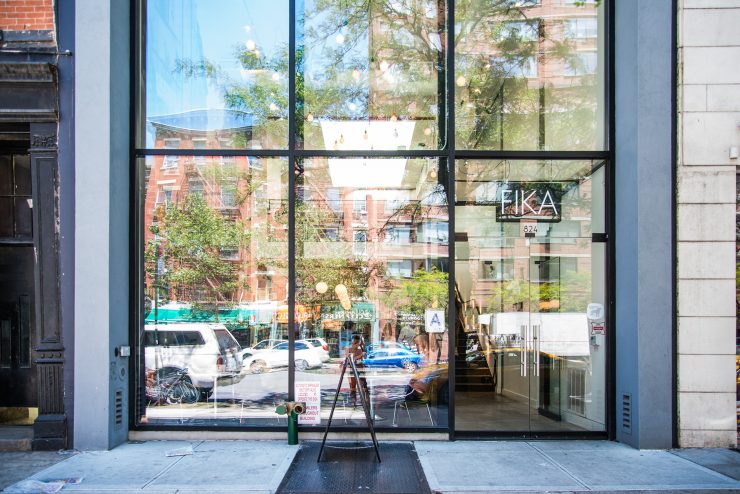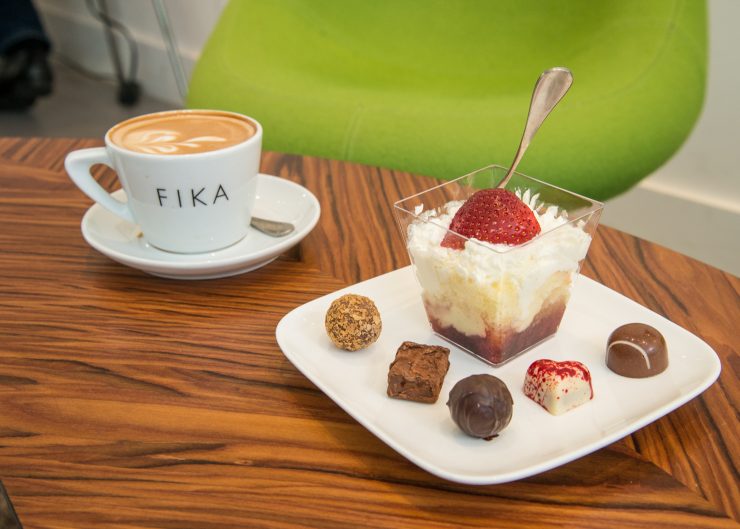A man, a plan, a FIKA: Lars Åkerlund was on a mission to bring the Swedish fika phenomenon to New York City. Now he has his eyes on the rest of the country. And, of course, the world.
Åkerlund opened the first cafe in his soon-to-be-successful FIKA chain on 58th Street, just south of Central Park in 2006. One of his proudest memories from that shop was convincing construction workers renovating the plaza that $4.00 is a reasonable price for quality coffee. And just as they became regulars, he’s been working to convert New Yorkers to appreciate coffee, food, and confections of a higher quality with a Swedish bent.
But New Yorkers tend to be open to trying the finer things. Perhaps the more ambitious goal was to bring the Swedish notion of fika to a city that has famously shortened the length of a minute. But that’s what Åkerlund set out to do when he moved to the US in 2005. After scrapping a cushier plan to sling cocktails in the Caribbean, Åkerlund has been following his roadmap to integrate “fika” into the American-English lexicon with laser focus on first conquering Manhattan.
“Fika” is, of course, the Swedish term for a break from the things you do that aren’t drinking coffee to drink coffee and enjoy a delightful bite to eat; tea time for the Sprudge set, albeit without temporal guidelines.
Naturally, FIKA allows New Yorkers who can’t stop/won’t stop to grab a cup of espresso or drip to go, but it’s hard to look at the colorful display cases packed with pastries and chocolates and not want to take an extra five or ten minutes to sit and enjoy a break. And Åkerlund feels like stopping to smell the fresh-baked bread could be a boon to the sea of over-worked and stressed-out Manhattanites.
FIKA the cafe has been traveling its own path on the edges of the Third Wave. With their focus on farmer relationships and ties to independent roasters, they fit the mold in some aspects. But the meteoric growth, employee uniforms, and expansive food program place it outside the milieu of traditional specialty coffee shops. When Åkerlund talks about wholesale, he’s talking about bakery output, not coffee beans.
And they’ve been on fire as of late. Åkerlund, along with wife/co-owner/Director of Strategy and Communications Lena Khoury, Master Chocolatier Håkan Mårtensson, Fine Pastry Chef Josefine Baummann, and Executive Pastry Chef/Baker Robert Tell, and the growing team have opened eight shops in the last 10 months in Manhattan, making them the fastest growing chain in one of the most competitive real estate markets in the world—at a time when the Green Mermaid is feeling the heat on their own rents to boot. FIKA now boasts sixteen locations from the Upper West Side down to Tribeca. And Åkerlund isn’t done; a shop on the Upper East Side is immanent; and later this fall, FIKA will open at the World Trade Center near the 9/11 Memorial.
As cafe owners know, finding the right space in a competitive market can be a matter of luck and serendipity; opening in the right location is key, and many of those locations don’t stay vacant for long. It just so happened for Åkerlund that the last eight spaces became available within about a year of each other. It’s a lot of pressure for a business to take on that much expansion, but Åkerlund isn’t taking a break from it. He’s not looking at local expansion directly across either the Hudson or East Rivers, but out of the state entirely: expect future FIKA locations in Washington DC, Boston, Philadelphia, Chicago, Miami, Austin, and Las Vegas. Oh, and then the Middle East and Asia, of course. Ambitious? Yes. Crazy? Maybe. “I think any entrepreneur can identify with having a certain amount of ‘insanity’ in their personality,” says Åkerlund. “I think a bit of ‘crazy’ can be a great thing, as long as it’s backed up by a lot of research, hard work, and passion.”
Within the cafes, Åkerlund eschews trends and fads. You’ll be presented with a lot of options as you browse the display cases, but the stated goal is to keep it rooted in Swedish tradition. Especially when it comes to the coffee. Though this might be one of the few modern shops where the barista will ask you if you want a single or double shot, there are no syrups at FIKA. And you won’t find uncommon sizing on milk-based drinks; at FIKA, you won’t see cortados or gibraltars on the menu. The staff can handle small proportion variations, but the goal is to stay true to smaller Swedish espresso bar menus. “We like to keep our menu simple and clean and don’t necessarily include all varieties of each different drink,” Åkerlund says. Though that small menu that’s remained consistent for nine years is about to see an update with the addition of a cold brew that Åkerlund is anxious to debut, rolling out to all the stores in July.
At a time when a lot of conversations around roast profiles lean toward how-light-is-too-light, Åkerlund is roasting a bit darker, in the old-school Scandinavian way. Not only is this his preference, but it makes the coffee a little more approachable to the throngs of New Yorkers who are still used to bodega grab-and-go cups. One exception Åkerlund is proud of was a Brazil Fazenda Santa Izabel for which he blended light and dark roasts of the same bean to bring out the various flavors. Åkerlund enjoys the experimentation inherent in coffee roasting, but not everyone looking for a cup of joe is looking for that; he needs to serve the tastes of customers. Originally Åkerlund had imported roasted coffee from Sweden, but the logistics of importing and maintaining quality control became unwieldy. The roasting is now handled by Åkerlund’s longtime friend John Moore at Noble Tree in Red Hook, Brooklyn.
The simple-and-good mentality extends to the food program as well. They’re focused on old-fashioned and traditional recipes, from the pastries to the meatballs. And while they’re not trying to reinvent the Swedish classics, they would be remiss if they didn’t let their talented staff add their own personal touch, which has resulted in a number of accolades, most recently from the chocolates that won three gold and two silver medals at the 2014 International Chocolate Awards to Executive Pastry Chef/Baker Robert Tell being included in Dessert Professional’s list of the top 10 bread bakers in North America.
Where the simplicity ends is the sheer volume of offerings: coffee, sandwiches, pastries, confections, protein bars, jams, and even bottled water from Pennsylvania. The ingredients lists on them are certainly short, but the number of times you can enter a FIKA without consuming the same thing twice surpasses most coffee retailers.
To say Åkerlund is hands-on is an understatement. He literally worked on construction for the first eight cafes. And he’s more than capable in that regard; he saved up enough to open the first FIKA by personally flipping properties in Sweden. Growth has allowed him to step away from fabrication to focus on cafe operations while still designing the stores. And just like the cafes themselves, the design is a blend of Swedish and American elements. The furniture comes from the Swedish firm Johanson Design, for whom his shops serve as a showroom of sorts. Woodworking is done to his specifications in the Bronx, and marble fabrication is done in Brooklyn. The result is a clean and crisp Scandinavian feel of industrial utility that’s broken up and softened with organic shapes and a few brightly colored elements. The continuity of menu and design spans all of the shops—from the oversized black-and-white photos to the white Synesso Cyncra espresso machines, Compak grinders, and FETCO batch brewers.
Despite the success, Åkerlund insists his mission is not profit-driven. He just wants to be great—the best, actually. And for him, this means conscientious sourcing and relationships with farmers. It means roasting locally. It means getting the best ingredients. When the recession hit, Åkerlund made a concerted effort to move as many of his purchases to be American-made as were possible. He also makes every effort to be as environmentally friendly; even some of the furniture is made from recycled materials. And he likes to give back and gets excited about non-profit activity in the US, working with the Go Campaign charity.
Åkerlund likes to refer to FIKA the cafe as “Born in Sweden and raised in America.” As a thank you for helping raise her, Åkerlund is imploring us to treat ourselves to a fika: to take a break, meet face-to-face, drink some unpretentious coffee, eat some quality food, and have some award-winning chocolate.
FIKA has multiple locations, visit their official website for more information.
D. Robert Wolcheck is a Sprudge contributor based in New York City. Read more D. Robert Wolcheck on Sprudge.
The post FIKA NYC: Inside New York’s Most Scandinavian Coffee Chain appeared first on Sprudge.


